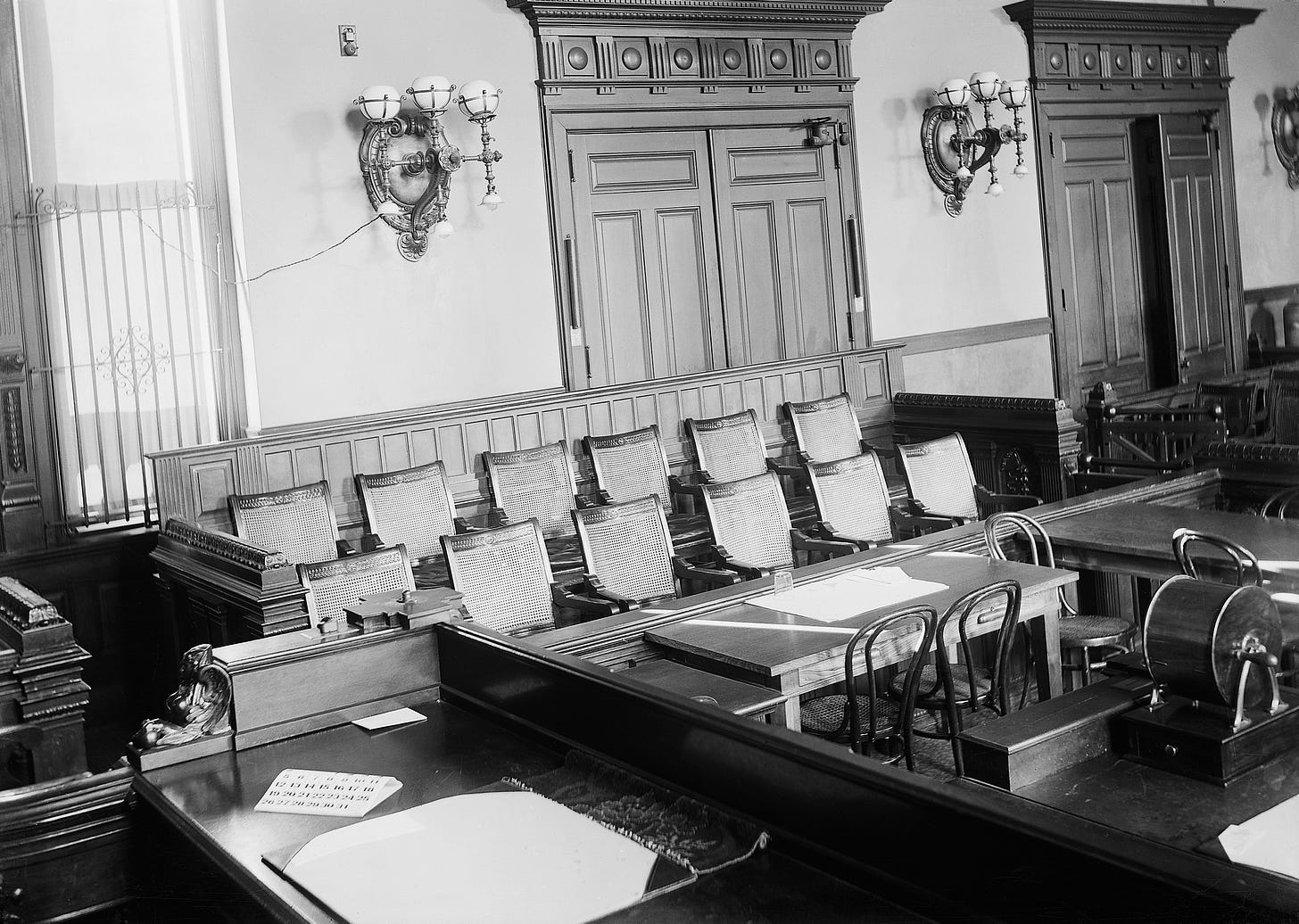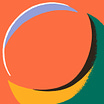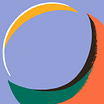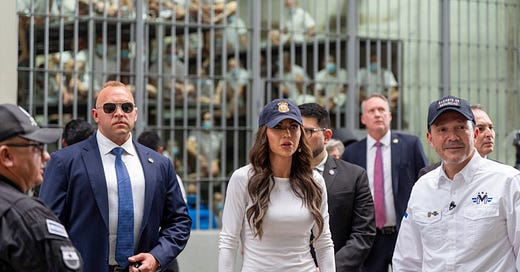
Three Takeaways About Judge and Jury in Trump’s Manhattan Trial
Plus: How the judge chastised Trump last week.

WE ARE ALL WITNESSES TO HISTORY NOW. In Manhattan, opening statements will be made today in the first-ever criminal trial of a former president of the United States. For all Donald Trump’s efforts to delay this day, he sits in the docket facing accountability to the law.
There will be a mountain of evidence of guilt. And by all appearances, the jury that will be adjudicating Donald Trump’s innocence or guilt is loaded with the qualities good prosecutors seek.
1. A jury selection process Americans can believe in.
The process of selecting jurors for Trump’s trial provided support for the trust most Americans have in juries.
More than half the pool candidly admitted they might not be impartial and were quickly out the courtroom door. As late as Friday, Justice Juan Merchan excused an already-seated juror who said she no longer thought she could be fair. Merchan also dismissed another seated juror about whom prosecutors discovered material information the juror failed to disclose.
We have every reason to believe that both Trump and the people of New York have gotten as fair a jury as possible for the trial of an ex-president currently seeking re-election.
2. A jury of working New Yorkers . . . and highly educated.
Work life is or was the experience of all twelve regular jurors. In addition, they skew heavily toward the better educated and better informed: The media has reported on the educational levels of nine of the twelve seated jurors. Six have postgraduate degrees, another has a college degree, one has some college education, and the ninth a high school diploma. Seven of nine jurors with a college degree is 78 percent, compared to about 40 percent of Americans aged 25 and older.
As prosecutors, we preferred educated jurors with significant experience in the working world. It cultivates common sense. Along with critical thinking skills, common sense favored the outcome we sought because the evidence of guilt had to be strong before launching the prosecution.
The jurors get their news from mainstream media, not conspiracy blogs. Eight of the twelve read the New York Times, as do five of the six alternate jurors. Four also read the Wall Street Journal. As for television, one juror watches both MSNBC and Fox News, two watch CNN, one watches CNBC, and another the BBC. One or two don’t follow the news much, a proportion not unusual in today’s America.
One of us (Lacovara) was a Watergate prosecutor. When President Richard Nixon’s Watergate co-conspirators were tried in 1974, what was surprising was the high percentage of potential jurors in Washington who said they had no idea about the Watergate affair. That situation is different in 2024; virtually all of the jurors acknowledged knowing about Donald Trump and his indictments.
There is one rare feature of the jury—it includes two lawyers. In criminal trials, one side or the other generally strikes lawyers from a prospective jury panel.
Politico interviewed a Florida-based trial consultant who said that the lawyers’ presence might please Trump’s team. If the defense strategy involves technical issues, the consultant said, they “might want someone who’s going to take a more highly technical view of the case.”
Perhaps. Or perhaps the lawyers are going to help separate wheat from chaff and help explain jury instructions. “I’m a litigator,” one of the lawyers said under questioning before being selected, “so I take the law seriously, and I take judges’ instructions very seriously.”
A primary defense strategy in this case will be to aim to hang the jury by insisting that if they are going to vote to convict him at all, they should only convict Trump of misdemeanors, which he can tell voters are akin to parking tickets. The crimes with which Trump is charged, falsifying business records, is only a felony if the defendant also intended to violate another criminal statute such as one involving election law.
Trump’s team will argue that hiding the payments was meant to keep his sexual tryst with a porn star from Melania Trump, not from the voters. Lawyers can help sift through the evidence corroborating the contrary testimony of both Michael Cohen, Trump’s co-conspiring attorney and “fixer,” and David Pecker, the National Enquirer publisher and Trump’s other co-conspirator in the “catch and kill” scheme.
Pecker is reported to be the first witness. His testimony, like Cohen’s, will show that Trump intended to cover up a back-to-back scandal after the Access Hollywood tape alone nearly ended his presidential prospects mere weeks before the election.
Moreover, lawyers know that not every question about guilt or even every doubt is a “reasonable doubt.” Lawyers are more likely to be able to expose doubts that do not have a reasonable basis. It is often “unreasonable” doubts that hang juries.
3. Rule of law ascendant.
In this country, the first principle of constitutional order is that no one is above the law. By contrast, Donald Trump’s brand is to dominate other people and undermine the law.
But at this moment of his reckoning, the judge and the rules of the courtroom are in charge. Under the court’s orders, Trump has had to sit for hours on end, enduring potential jurors’ comments that he’s a racist, sexist, and narcissist.
Then, when Trump stood just before court adjourned, Justice Merchan directed him, “Sir, would you please have a seat?”
In an important sense, the medium of the courtroom is the message, and it will be for the coming weeks and months. Press reports from the trial describe Trump as the opposite of a powerful man, slumped and dozing.
Outside the courtroom, he is fighting for his brand. Hence he speaks daily to the cameras on his way in and out, testing the judge’s gag order by threatening witnesses and disparaging the jury. (Another goal is to set up his phony claim, if convicted, that the trial was rigged.) We will see how Trump’s outrageous conduct fares on Tuesday, when Justice Merchan hears the prosecutors’ motion to hold Trump in contempt for violating the gag order.
We have seen Merchan’s strength in action. To trial lawyers, the most obvious sign was the speed with which a jury was picked in a case where everyone holds opinions about the defendant. In addition, Merchan has turned away more than a dozen attempts to delay the trial. Further, Merchan immediately brought down the hammer on Trump for muttering audibly about a juror: “He was speaking in the direction of the juror. I will not tolerate that. I will not have any jurors intimidated in this courtroom. I want to make that crystal clear.”
There are fireworks to come. But make no mistake: During this trial, the rule of law will turn Trump’s cultivated image of dominance into a shell of itself. And while jury verdicts can never be predicted with certainty, the strong likelihood is that when all is said and done, Trump will be left blaming his lawyers for a judge and jury he couldn’t control.


















